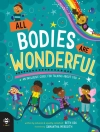This book presents hands-on tools for addressing the multiple ways that brain injury can affect psychological functioning and well-being. The author is a leader in the field who translates her extensive clinical experience into clear-cut yet flexible guidelines that therapists can adapt for different challenges and settings. With a focus on facilitating awareness, coping, competence, adjustment, and community reintegration, the book features helpful case examples and reproducible handouts and forms. It shows how to weave together individual psychotherapy, cognitive retraining, group and family work, psychoeducation, and life skills training, and how to build and maintain a collaborative therapeutic relationship.
Jadual kandungan
1. Introduction and Overview
2. Guidelines for Early Psychotherapy Sessions and General Treatment Considerations
3. Increasing Patients’ Self-Awareness
4. Sense of Self and Identity,
with Stephen M. Myles
5. Increasing Acceptance
6. Life Skills Training
7. Family Life,
with Edward Koberstein
8. Communication and Social Skills
9. Adjustment and Treatment Termination
10. Psychotherapist Self-Care: Managing Stress and Avoiding Burnout
Mengenai Pengarang
Pamela S. Klonoff, Ph D, ABPP-CN, is a faculty neuropsychologist and Clinical Director of the Center for Transitional Neurorehabilitation, Barrow Neurological Institute of St. Joseph’s Hospital and Medical Center, Phoenix, Arizona. She has been affiliated with the program since 1986. Dr. Klonoff is board certified in Clinical Neuropsychology by the American Board of Professional Psychology. She specializes in outpatient milieu-oriented neurorehabilitation, with a particular interest in psychotherapy with patients and their families after brain injury. Dr. Klonoff has published many articles and presented theoretical and clinical papers around the world; her expertise and research focus on holistic neurorehabilitation, including psychotherapy and cognitive retraining after traumatic and other acquired brain injury.












